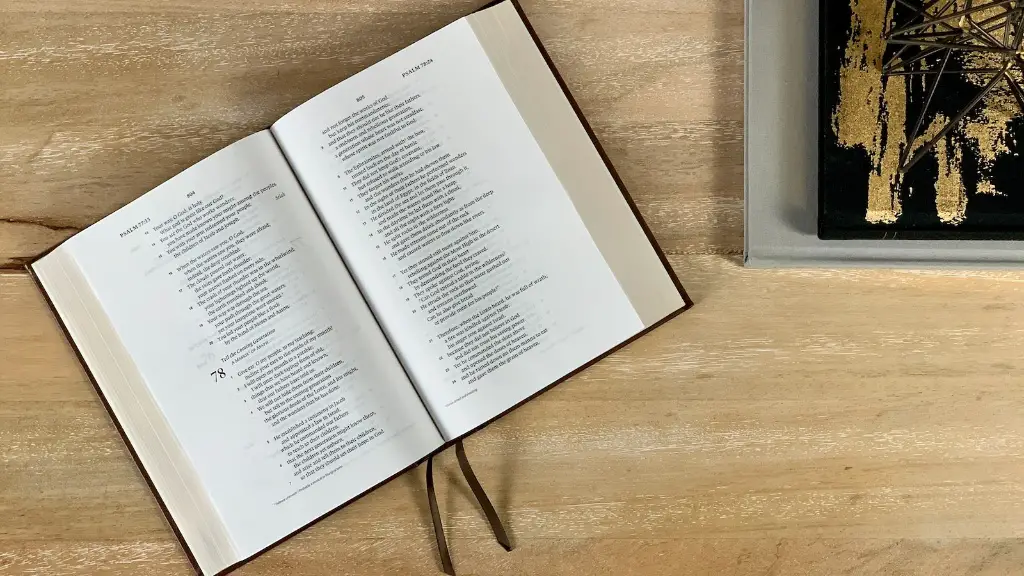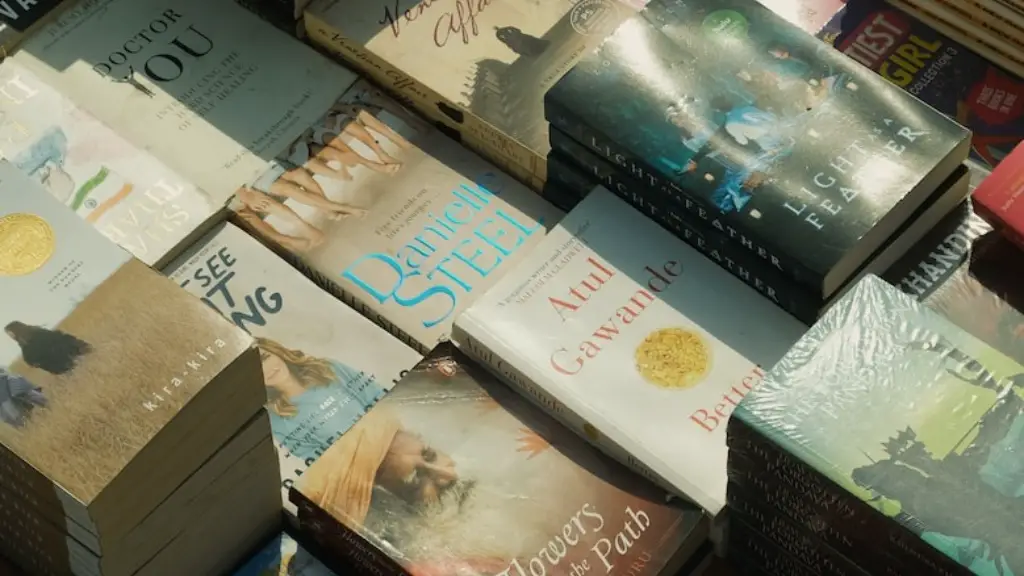What is the value of Poetry?
Poetry has been around for centuries, and its power has been tapped into and expressed by writers, poets and philosophers alike. Poetry is a form of creative writing that offers an opportunity to convey emotion and feelings in a way that is both engaging and meaningful. It has the power to move and influence us, making us stop and ponder life’s many nuances and mysteries. Throughout the ages, poetry has often been used to address themes known to all, from love and loss, to hope and despair. It has allowed us to express ideas, values and beliefs in unique and powerful ways, giving readers and writers alike an intimate insight into the experiences of life.
The deepest power of poetry lies in its ability to capture the emotion of its audience. When writing or reading poetry, it becomes clear that there is something unique that can be felt in trying to understand the intent and explain the emotion of others. What poetry does, is allow us to explore the interior of ourself and make connections between our own feelings and those of the poet. Poetry has the ability to give expression to our experiences, while at the same time, providing those of us who read it with a sense of shared understanding.
It’s important to note that the value of poetry isn’t limited to literature analysis. Poetry can act as a cathartic release, allowing us to express our feelings without being judged. It can be used to help process experiences, to heal and grow. Poetry can also be a form of self-expression and a bridge to self-discovery. From the standpoint of mental health professionals, it is no surprise then that many counsellors advocate for the use of writing and poetry in assisting individuals work through difficult issues and challenges in life.
Finally, in order to point out the value of writing and reading poetry, we should briefly mention the impact that poetry has on our society and culture. Poetry can act as a mirror, reflecting and responding to the world around us, giving shape and texture to events and issues held dear. Whether we are dealing with acts of injustice, or celebrating the joys and miracles of life, poetry offers us a language for expressing the human condition.
Influence and Meaning
Poetry has a strong influence and meaning in our culture today. It offers an accessible way to express and document emotions, but also provides hints of social and political messages. Poetry can often express complicated themes, such as war, politics or religion, and create understanding and empathy between different groups. Poetry can also create a platform for people to express themselves in ways that are removed from our everyday lives, allowing us to explore realities that are often overlooked.
In terms of literature analysis, understanding and interpreting a poem can offer us additional insight, principles and knowledge about various areas of life. It can help us to question and ponder on certain aspects of our existence, uncovering valuable understanding through the poet’s words and imagery. By providing a unique setting for writers, poets and readers to express their thought, it allows us to explore our selves, culture and life in general on a new level.
It can also be said that poetry serves as a powerful communication tool, a form of communication that is often overlooked in today’s technologically driven world. It bridges communication gaps between people, creating connections and understanding through words, imagery and sound. It encourages dialogue, offering the opportunity to express feelings in an articulate manner, while at the same time providing an outlet to think abstractly. By its very nature, poetry brings together universal sentiments and shared experiences, allowing us to communicate our thoughts in a more meaningful and impactful way.
Finally, it’s important to remember that poetry is a form of art, allowing us to experience and celebrate beauty, while also considering complex concepts in a creative way. Whether we’re reflecting on love, anger or regret, poetry allows us to create beauty and find joy in words that convey our deepest emotions.
The Power of Language
When it comes to the power of poetry and literature, few things compare to the power of words. Poetry takes language to a whole different level, allowing us to create nuanced, sophisticated and layered works of art. Poetry’s influence is unparalleled when it comes to expressing our thoughts and feelings. Its power lies in its ability to convey complex concepts and push the boundaries of human language, while at the same time, making its poem accessible and understandable to readers.
The structure of poetry also provides a unique pedagogical opportunity, as it allows teachers to engage and connect with students in ways that are far removed from traditional classrooms. Instead of memorising information and data, students receive an opportunity to explore and understand concepts in a different and more relatable manner. This can create a far more positive learning experience, as students can relate to their own experiences when engaging in poetry.
The power of poetry also comes down to its emotional force. Poems can evoke powerful responses from the reader, allowing them to walk away from their readings with a sense of understanding and emotion. Whether it’s sadness or joy, poetry can offer a sense of connectedness and understanding between the poet and reader, one that only the written word can offer.
Ultimately, the power of poetry lies in its ability to offer an alternative communication method, allowing us to express ourselves and emotions in a powerful and meaningful way. Through its powerful language, vivid imagery and creative structure, it can create beauty, joy, understanding and a connection to the human experience.
Breaking Norms and Expressing Ourselves
The value of poetry also lies in its ability to break through norms. Through its various forms and styles, poetry can become an influential media for disrupting the status quo and challenging prevailing ideas and beliefs. It can provide writers with a platform to express their own beliefs in ways that would otherwise be considered controversial or unlikely.
In today’s climate, poetry has the power to inspire others and to break convention. Through the words of the poet, we can understand the intensity, complexity and beauty of ideas and beliefs that may not stand strong in other mediums. By providing a different approach to communication, poetry can be used to spark conversations and insight in ways that wouldn’t be possible without it.
Poetry has the potential to inspire people and to help them see the world through a different lens. By providing insights into personal experiences and beliefs, it can be used to build respect, understanding and empathy between people. In many ways, it has the ability to bridge divides, creating a platform for people to engage and understand each other on a new level.
Finally, it goes without saying that poetry is a powerful tool to express ourselves. Even when the world can feel out of our control, it can be reassuring to create and express ourselves through words, something that is only achievable through poetry and literature. Poetry can also offer a way for us to share our thoughts, feelings and beliefs with others in ways that are only possible through its unique form.
Limiting Factors of Poetry
Despite its many advantages and benefits, poetry does come with certain limitations. Although poetry can be used to express complex concepts, it does so with a certain air of incompleteness. In many cases, poems can often come across as overly abstract and vague, making it difficult for readers to truly understand what a writer is getting at.
This can also be said of figurative and metaphorical language. While these types of poetic tools can offer a unique way to express oneself and create powerful imagery, they can also be difficult to understand and interpret. This may often be seen as one of the major limitations of writing and poetry, especially if one is trying to convey their thought in a clear and concise manner.
Another possible limitation lies in the ever-evolving language of poetry. Writing poetry often requires exploring and mastering new words, conventions and forms. While this has the potential to create new and unique pieces of work, it may also prove difficult for some to keep up with these changes and trends. This may be seen as an additional limitation to poetry, as our language evolves so quickly that it can be hard for some to keep up.
The final limitation to consider is the sheer amount of time it takes to write a poem. It takes a great deal of effort and hard work to develop a well-crafted piece of work, and one that is both enjoyable to read and true to its core message. The final outcome of any poem is largely dependent upon the time and dedication of its author, something which may not be achievable by all.
Modern Poetry and Social Media
In recent years, the availability of platforms such as social media has offered a powerful platform for contemporary poets to communicate and reach a wider audience. By connecting with others, poets can grow their fan base and share their work with larger numbers of people than ever before. This can be seen as an advantageous aspect of modern poetry, as it allows authors to connect with others in far more personalised ways.
The increasing prevalence of technology has also altered the face of poetry, offering a vast array of artistic tools to enhance its creative flare. Digital tools make it easier to produce and distribute poetry, which in turn has opened up the potential of modern poetry and literature in new and exciting ways. This has the potential to move poetry out of books and into the public domain, where it can reach new generations of potential readers.
Finally, it should be noted that social media tools can also be used to spark conversations and discussions around modern poetry. Through platforms such as Twitter or Instagram, it’s now possible to share poems, start conversations and debate the merits of different works. This type of interaction can act as a great way to bridge the gap between poet and reader, giving both a greater understanding and appreciation of the literature.
Preserving the Value of Poetry
Poetry has the potential to offer so much to our appreciation and understanding of life and the human experience. For this reason, it is important to recognize and protect the value of poetry, and ensure that it is preserved for generations to come. One possible way to do this is to encourage more publishers, institutions, festivals and organisations to focus on the promotion of poetry and literature. This could be done through increased funding, scholarships and other forms of support.
A further way of protecting the value of poetry could be to raise awareness of existing initiatives and organisations dedicated to promoting contemporary poetry. By showcasing what is available and engaging with communities, it may be possible to create an environment in which poetry can thrive.
At the same time, it is important to remember that it is up to individuals to appreciate the value of poetry. If we can focus on the beauty of the words and creations of writers, then the value of poetry will be something that has the power to last for generations.





